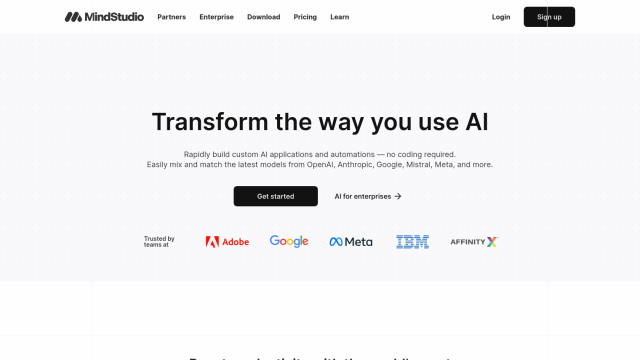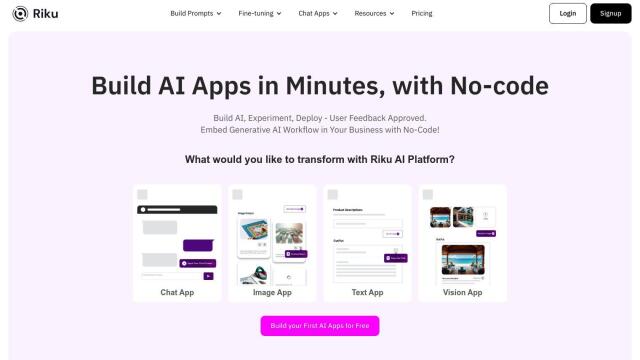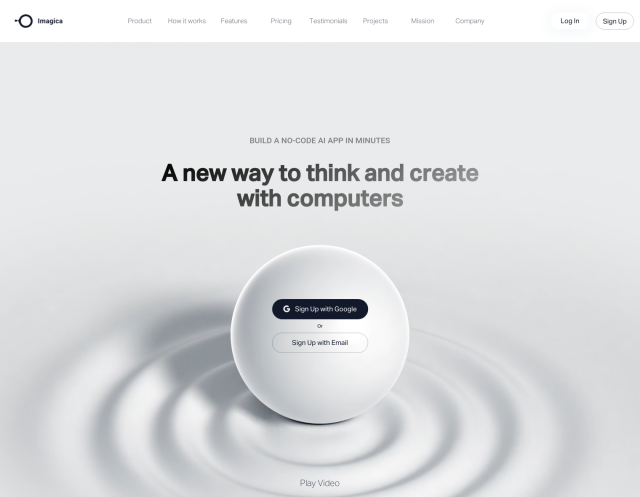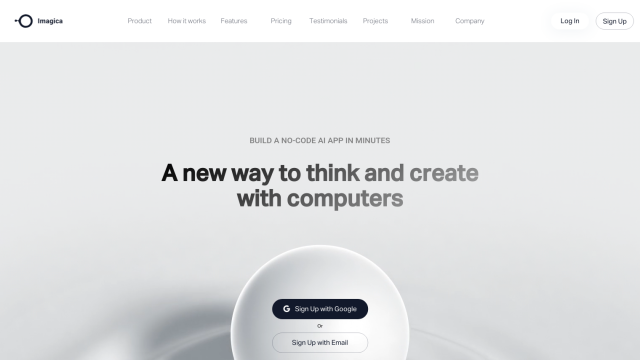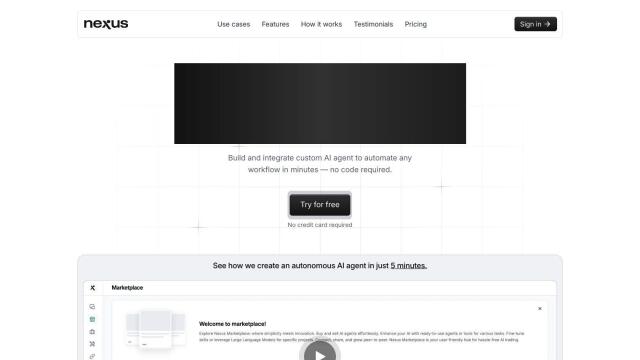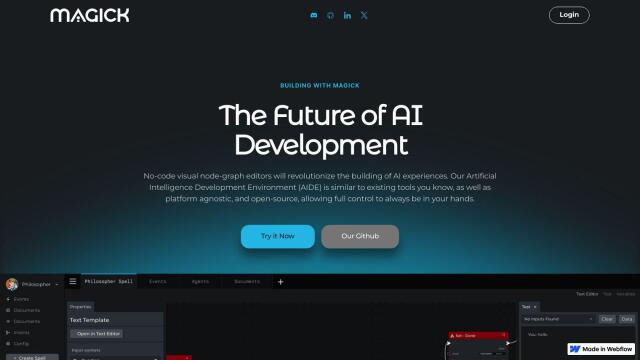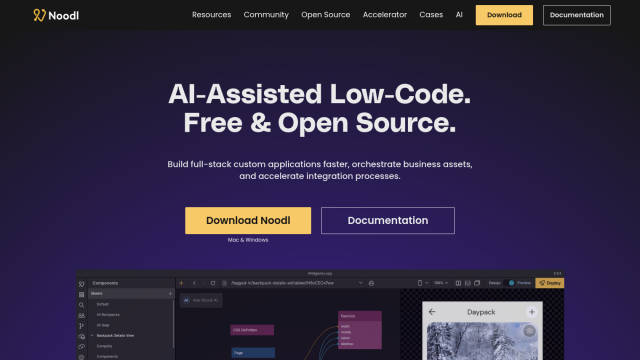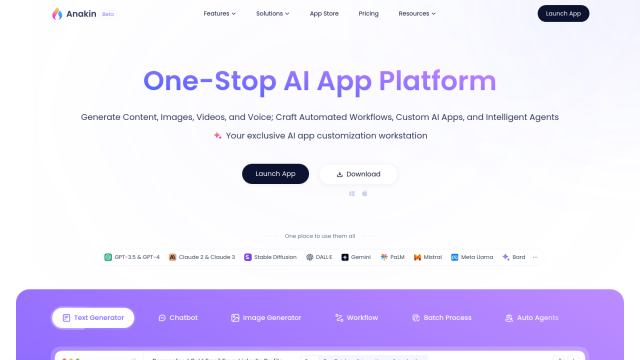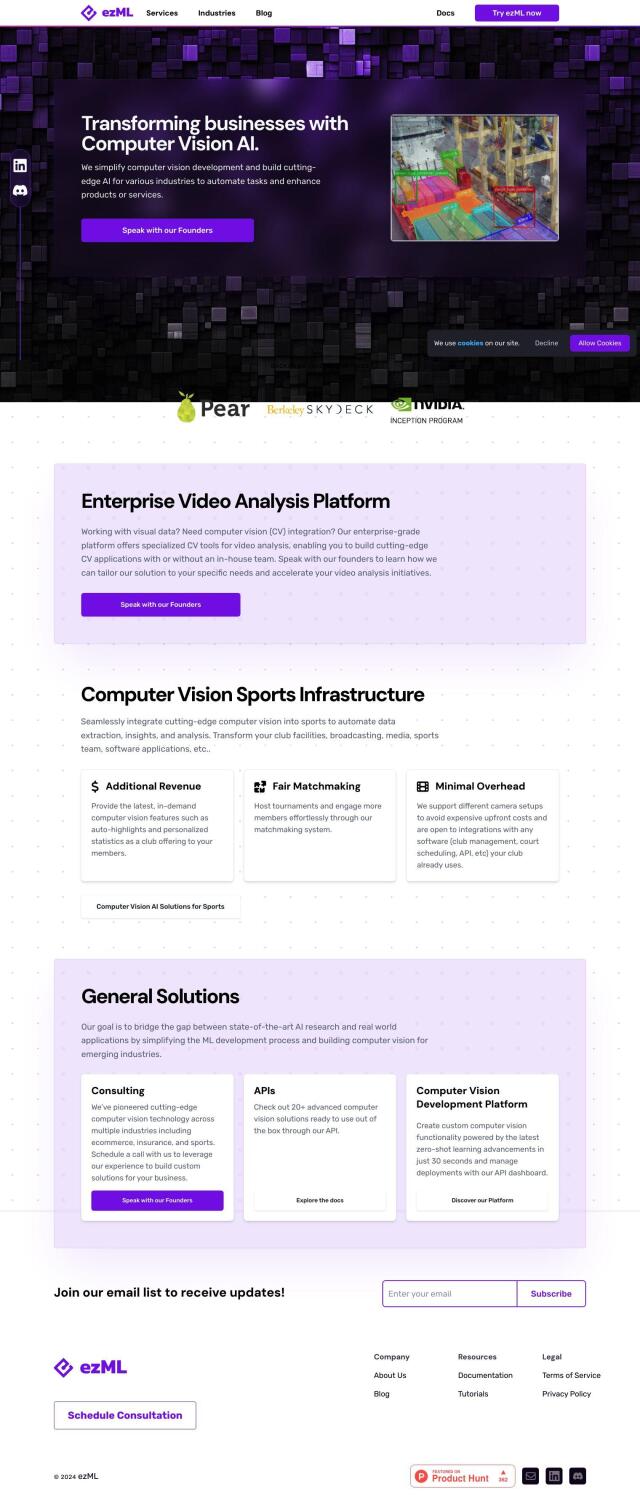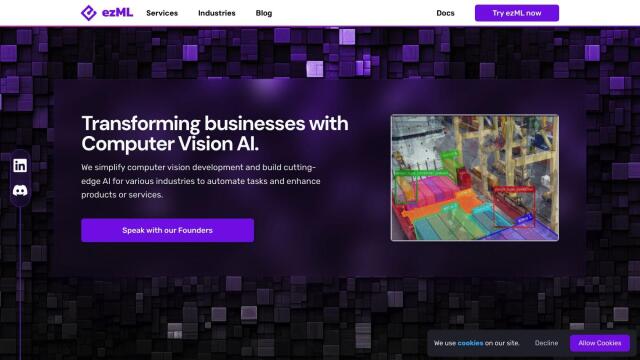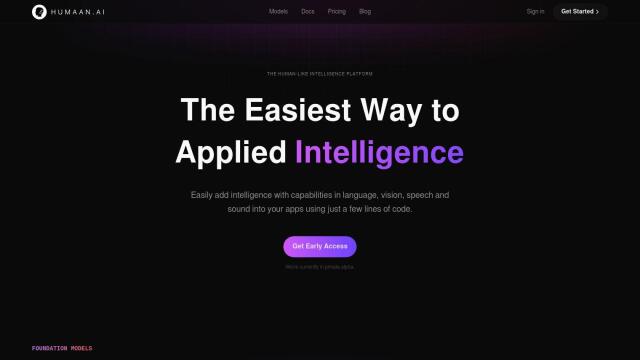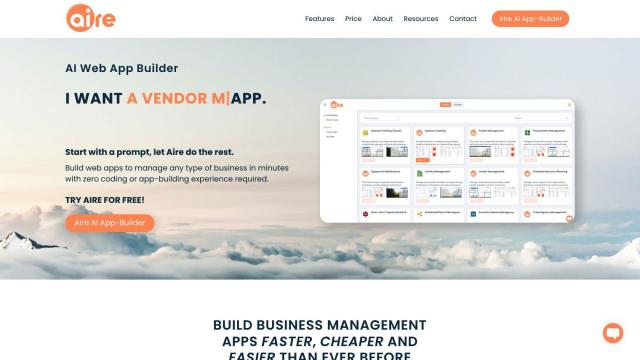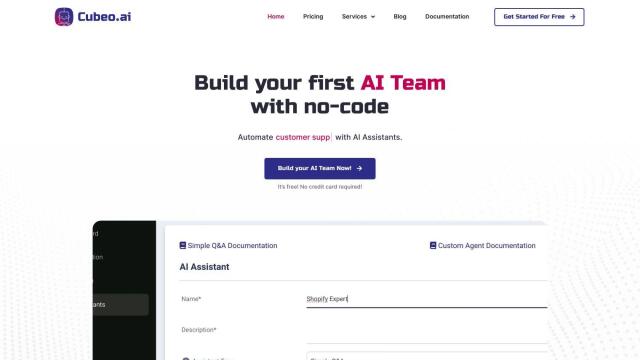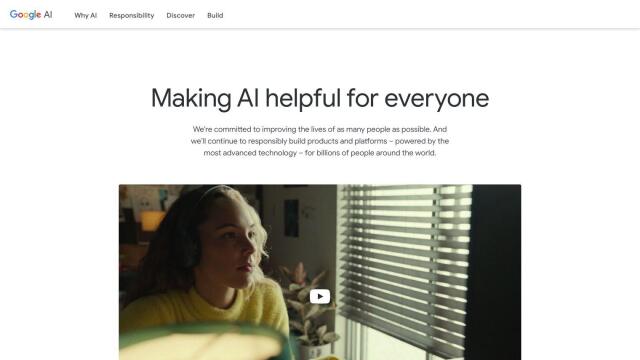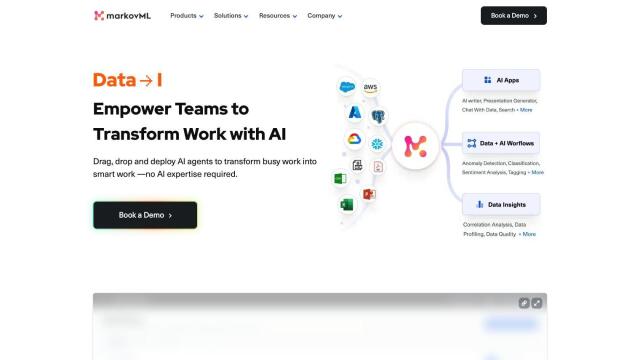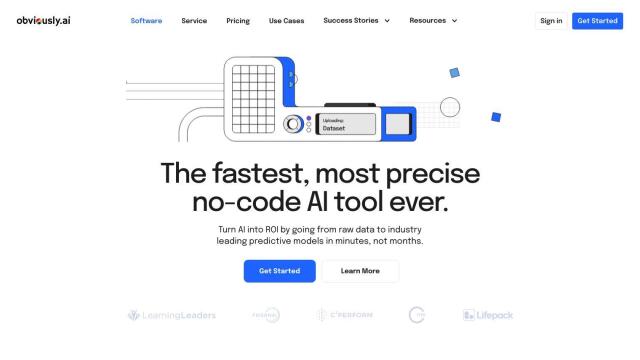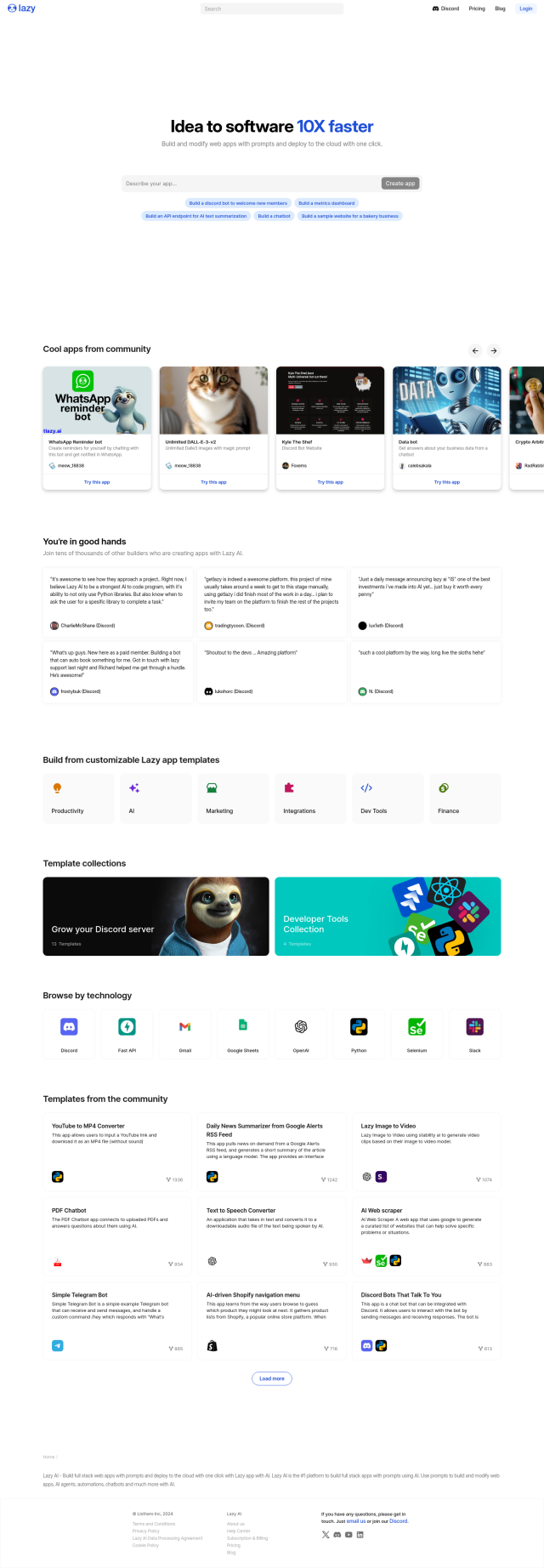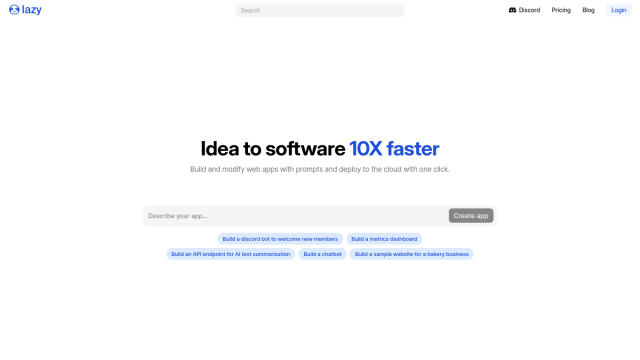Question: Is there a low-code development platform that can help me build AI and ML apps, including computer vision and NLP projects, with minimal complexity?

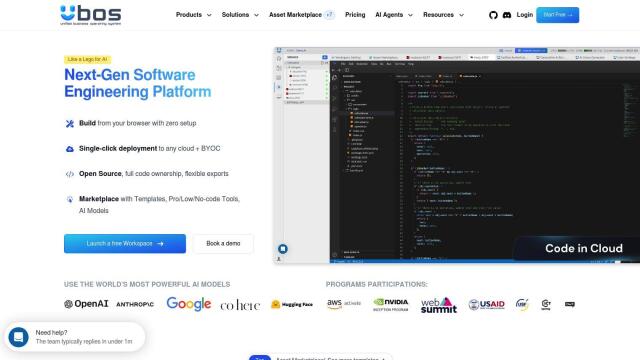
UBOS
If you're looking for a low-code development platform for building AI and ML apps, including computer vision and NLP projects, UBOS is a great option. It lets you create custom Generative AI apps directly in your browser with no setup required and supports a range of AI models including ChatGPT and Llama 2. With features like one-click deployment, shared workspaces and open-source tools and templates, UBOS is geared for both technical and non-technical users, with a range of pricing tiers including a free Sandbox option.

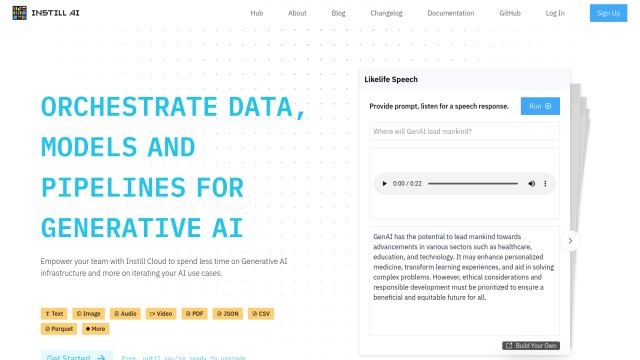
Instill
Another top contender is Instill, a no-code/low-code AI platform that makes it easier to create generative AI apps. It includes features like speech responses, webpage summarization, visual help and object detection, with a modular and extensible design. Instill is built from open-source components and uses a drag-and-drop interface for custom pipelines, and it includes SDKs for Python and TypeScript. Instill also has tiered pricing, so it can be used for a variety of use cases and business sizes.

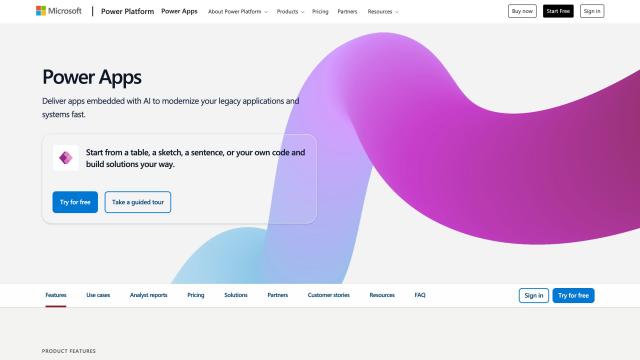
Power Apps
If you want a platform that works well with other Microsoft tools, Power Apps from Microsoft is a good option. It's a low-code development environment with features like AI suggestions, Copilot and drag-and-drop tools to modernize legacy software. You can create AI-powered apps quickly and deploy them with confidence using built-in deployment pipelines. It integrates with Microsoft Azure, Visual Studio and GitHub, so it's a good choice if you're already invested in the Microsoft ecosystem and want to build and manage your AI apps there.


Abacus.AI
Last, Abacus.AI is a powerful platform for building and running applied AI agents and systems. It can be used for large language model (LLM) apps, AI agents, predictive systems and other AI use cases like forecasting and anomaly detection. With features like high availability, governance and compliance, Abacus.AI is designed to make AI easy to integrate and scale for enterprises that want to automate complex tasks and increase operational efficiency.

